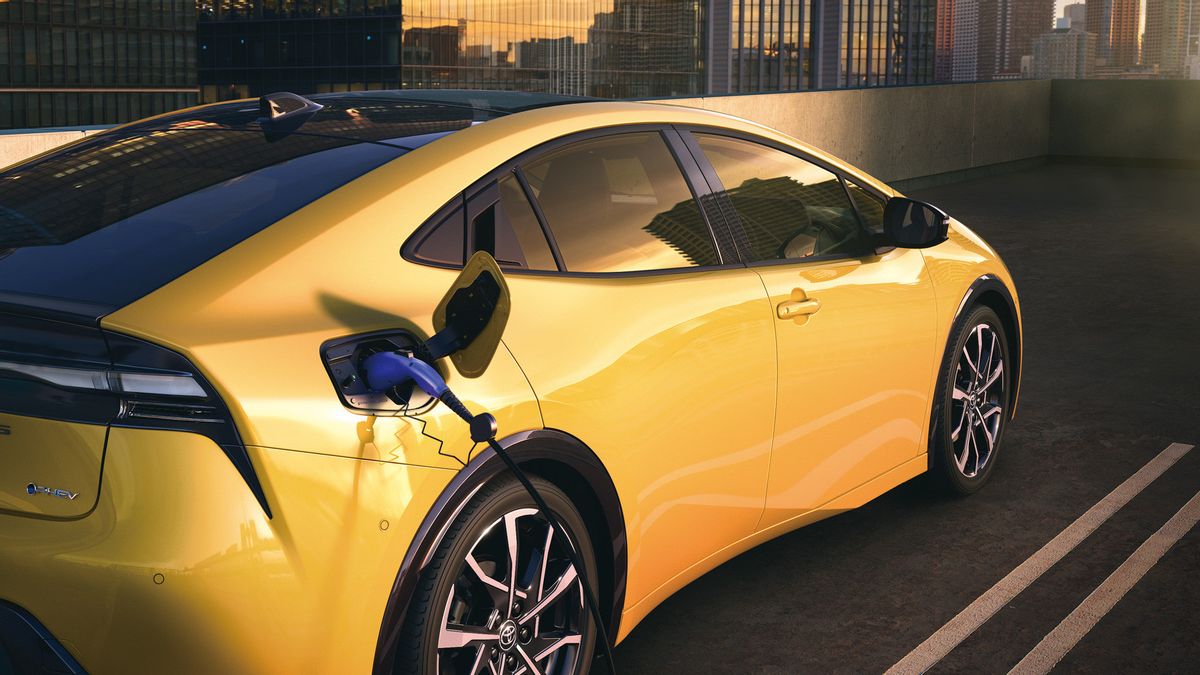
JAKARTA - Many people are familiar with hybrid cars, while pure electric cars (EVs) also have a simple concept: electric power is charged and can go hundreds of kilometers. But what if the hybrid car can be filled with electric power (PHEV)?
The plug-in hybrid (PHEV) car is indeed confusing for some people. PHEV can operate as an electric car for 20-50 km, enough for average daily use (about 30 km). However, PHEV also has gasoline engines and fuel tanks for hundreds of kilometers of long trips, without having to wait for old charging such as pure electric cars.
PHEV batteries are smaller and cheaper than pure electric cars, so they charge faster, about 2-3 hours at the 240-volt charging station. In fact, some PHEVs can be filled at home overnight with regular electric plugs.
Many PHEVs are adapted from ordinary hybrid cars. For example, Toyota Prius is an ordinary hybrid, while the Prius Prime (with almost the same appearance) is PHEV with an electric range of up to 70 km.
PHEV Doesn't Need To Be Striked? No Problem!
Launching Car and Driver, April 12, is an American automotive lover magazine that was first published in 1955, PHEV can still run even though it is not filled with electricity. The battery will be recharged through regenerative braking or gasoline engines. Even some PHEVs can charge more batteries than ordinary hybrids when descending a steep road.
But overall, PHEVs that are not filled with electricity function like regular hybrids. Although it may be more efficient than gasoline cars, the consumption of fuel is usually more wasteful than standard hybrid.
Many PHEV owners like the silent of the cabin during electric and fuel efficient modes. However, some feel bothered by the habit of charging. In fact, there are buyers who are not aware that their car can be electrified because it is sold as a "hybrid" and the seller does not explain.
PHEV Promises? Not Sure.
PHEV's ability runs without charging electricity, although it is still economical, benefits the owner but harms the environment. Why not just buy a normal hybrid? In addition, PHEV's complex technology makes it less reliable than hybrid or gasoline cars. The problem is often related to PHEV features such as scheduling charging or cabin cooling through the application.
So, why does PHEV exist? Fans like PHEV after understanding how it works. Car manufacturers also like it because it is a cheaper and easier solution to meet emission regulations than pure electric cars. After all, they don't need to bother whether consumers charge or not.
The English, Chinese, Japanese, Arabic, and French versions are automatically generated by the AI. So there may still be inaccuracies in translating, please always see Indonesian as our main language. (system supported by DigitalSiber.id)












